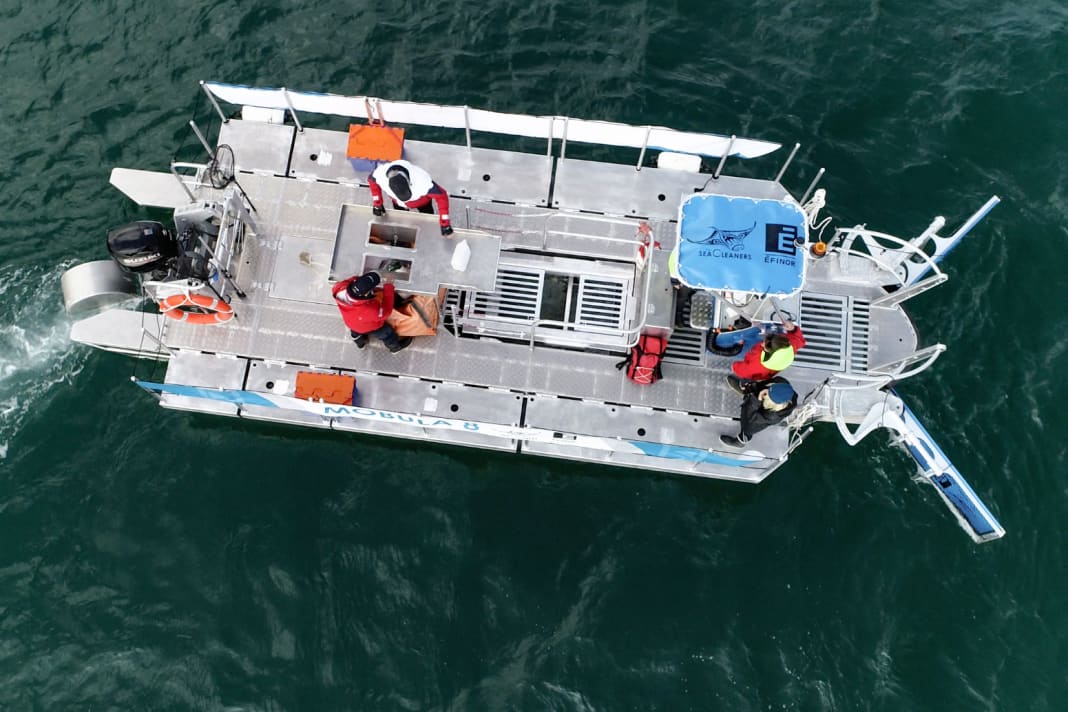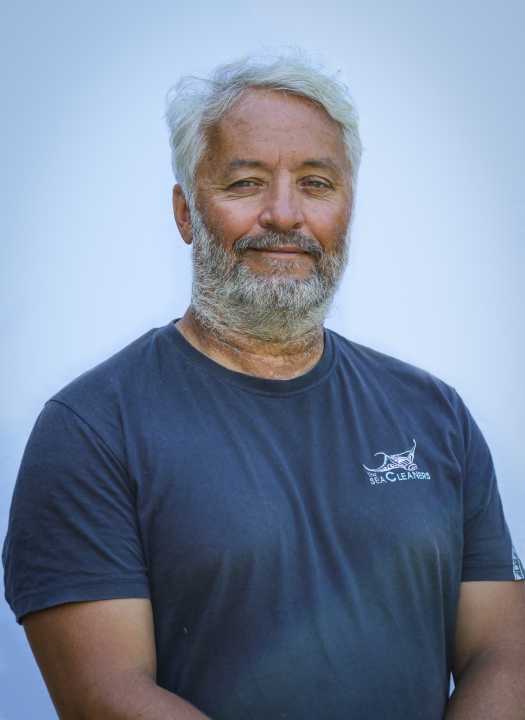





As a sailing adventurer, Bourgnon has recently been highly controversial. There were considerable doubts about his alleged solo record-breaking trips on a small catamaran. In the meantime, he even had to answer for this in court. The YACHT had reported on this.
Now he is back in the public eye with positive headlines. The 51-year-old French-Swiss skipper was one of the initiators of the development of a small waste collection vessel suitable for rivers and coastal waters.

According to The Sea Cleaners, the "Mobula 8" can clean up to 15,000 square metres of water surface of plastic particles and microplastics per hour and take up to 2.45 tonnes of these on board. Thanks to its low weight and manageable size, it can also be transported by land and quickly brought to its respective locations.
For Dieter Janecek, Federal Government Coordinator for the Maritime Economy and Tourism, the commitment of The Sea Cleaners is a role model: "Anyone who has ever been on holiday by the sea has noticed plastic waste on the beach. Environmental protection projects that collect and recycle plastic waste on the coast and in the oceans and do this with emission-free ships are a role model for what is possible with technological innovation and social commitment."
The "Mobula 8" is being steered by an Indonesian woman on its first mission. "Some time ago, I thought I saw a whale at sea, but it was actually just plastic waste. That was a key experience that got me even more involved. Every piece of plastic that we fish out of the sea with the 'Mobula 8' is a contribution to saving the oceans," says the skipper. And further:
I hope that our work not only collects as much plastic as possible, but also raises awareness of our environment. Countries like Germany can use their opportunities, their voice and their international influence to help strengthen the issue of marine conservation."
In Indonesia, one of the favourite destinations of German holidaymakers, around 90 tonnes of plastic waste end up in the rivers every day. The country has set itself the goal of reducing the amount of plastic waste in its waters by 70 per cent by 2025. The results and findings of The Sea Cleaners' work should also help with this. The collected waste is categorised, weighed and its location recorded in order to draw conclusions about current conditions and distribution, among other things.
"The deployment of the 'Mobula 8' is the first step, others will and must follow," says Bourgnon, who is also pushing ahead with the development of a new, emission-free and seaworthy large catamaran: The "Manta" was last shown at the boot trade fair in Düsseldorf, and the shipyards are currently tendering for its construction.
SPD MP Daniel Schneider, a member of the German Bundestag's Environment Committee, is also enthusiastic about the project. He says:
The Sea Cleaners' 'Manta' is certainly one of the most exciting and important shipbuilding projects ever and a beacon of hope in the fight against the plastic waste crisis in the world's oceans. We hope that the first 'Manta' will soon be launched to tackle this human challenge and that others will follow as soon as possible."
